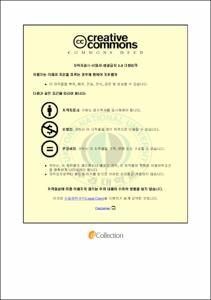아버지의 언어통제유형이 유아의 부적응 행동에 미치는 영향에 대한 정서지능의 조절효과
- Abstract
- The Moderating role of Child's Emotional Intelligence on the Relationship Between Father's Verbal Control Style and Child's Maladaptive Behaviors
Jo, A-Ra
Early Childhood Education Major
Graduate School of Education
Pukyong National University
Abstract
In order to investigate how a father's parenting efficacy, verbal control style and emotional intelligence of child's affect maladaptive behaviors, this study, at first, tried to find out correlation between each variable, and examined whether child's emotional intelligence moderate the impact of father's verbal control style on maladaptive behaviors.
The subjects of this study are 207 children(male 115, female 92) attending early childhood education institutes(4preschools , 2 nursery places) in the city of B and their fathers.
In order to measure maladaptive behaviors children, the rating tool for teachers modified by Ryu, Hyeongang(2007) was used. In order to measure father's verbal control style, the scale Dohyesuk (1997) developed on the basis of previous studies home and abroad was used. To measure the child's emotional intelligence, the tool which An, Sanghwa(2012) produced by modifying and complementing the scale of emotional intelligence developed by Lee, Byungrae(1997).
In order to analyze the data, the mean and standard deviation, and the percentage were found using SPSS 18.0 program, and Pearson's product-moment correlation coefficient, hierachical regression analysis were performed.
the results can be summarized as follows based on the research problem set in this study.
First, when father's verbal control style between emotional intelligence and maladaptive behaviors child's were examined, when it comes to the relation between father's verbal control style and maladaptive behaviors child's, imperative language control showed significant positive correlation with withdrawal, distraction, aggression and impulse among sub-areas in maladaptive behaviors of an child, and personality language control showed a significant positive correlation with distraction, aggression and impulse among sub-areas in maladaptive behaviors of child. Between emotional intelligence and maladaptive behavior of an child was shown a significant negative correlation.
Second, an child's emotional intelligence was shown to play moderating role in the impact of father's verbal control style on the total score of maladaptive behavior of an child and urge- maladaptive behaviors. That is, it was shown that the total score of maladaptive behavior and impulsive behavior of the children of the group where father's languages control level is low and emotional intelligence is high were the lowest.
- Issued Date
- 2014
- Awarded Date
- 2014. 2
- Type
- Dissertation
- Publisher
- 부경대학교
- Affiliation
- 대학원
- Department
- 대학원 유아교육학과
- Advisor
- 권연희
- Table Of Contents
- 목 차
Abstract
Ⅰ. 서론
1. 연구의 필요성 및 목적
2. 연구문제
3. 용어의 정의
Ⅱ. 이론적 배경
1. 유아의 부적응 행동
2. 유아의 부적응 행동에 영향을 미치는 요인
1) 아버지의 언어통제유형
2) 유아의 정서지능
Ⅲ. 연구방법
1. 연구대상
2. 연구도구
3. 연구절차
3. 자료분석
Ⅳ. 연구결과
1. 아버지의 언어통제유형 및 유아의 정서지능과 부적응 행동 간의 관계
2. 아버지의 언어통제유형이 유아의 부적응 행동에 미치는 영향에 대해 유아의 정서지능의 조절효과
Ⅵ. 논의 및 결론
1. 요약 및 논의
2. 결론 및 제언
참고문헌
부 록
- Degree
- Master
- Files in This Item:
-
-
Download
 아버지의 언어통제유형이 유아의 부적응 행동에 미치는 영향에 대한 정서지능의 조절효과.pdf
기타 데이터 / 803.75 kB / Adobe PDF
아버지의 언어통제유형이 유아의 부적응 행동에 미치는 영향에 대한 정서지능의 조절효과.pdf
기타 데이터 / 803.75 kB / Adobe PDF
-
Items in Repository are protected by copyright, with all rights reserved, unless otherwise indicated.